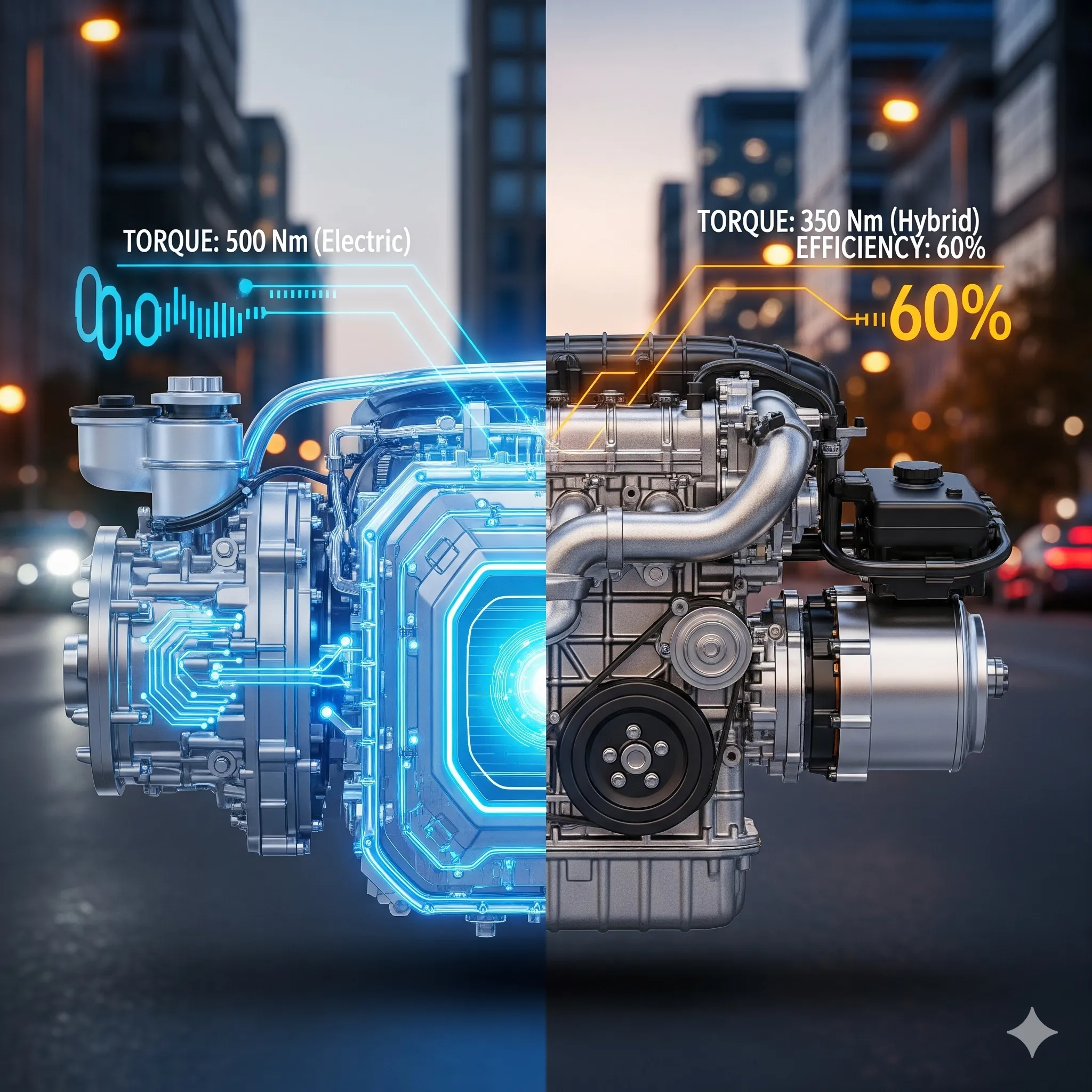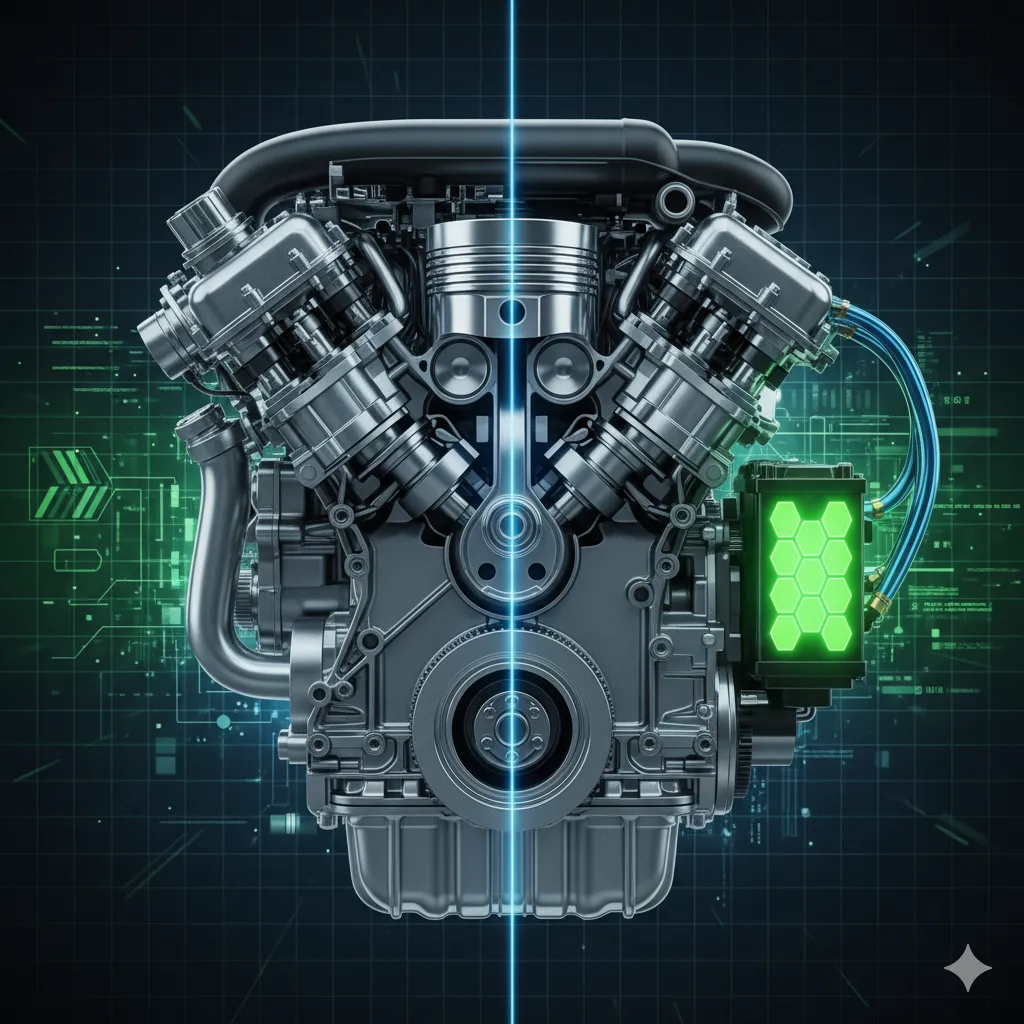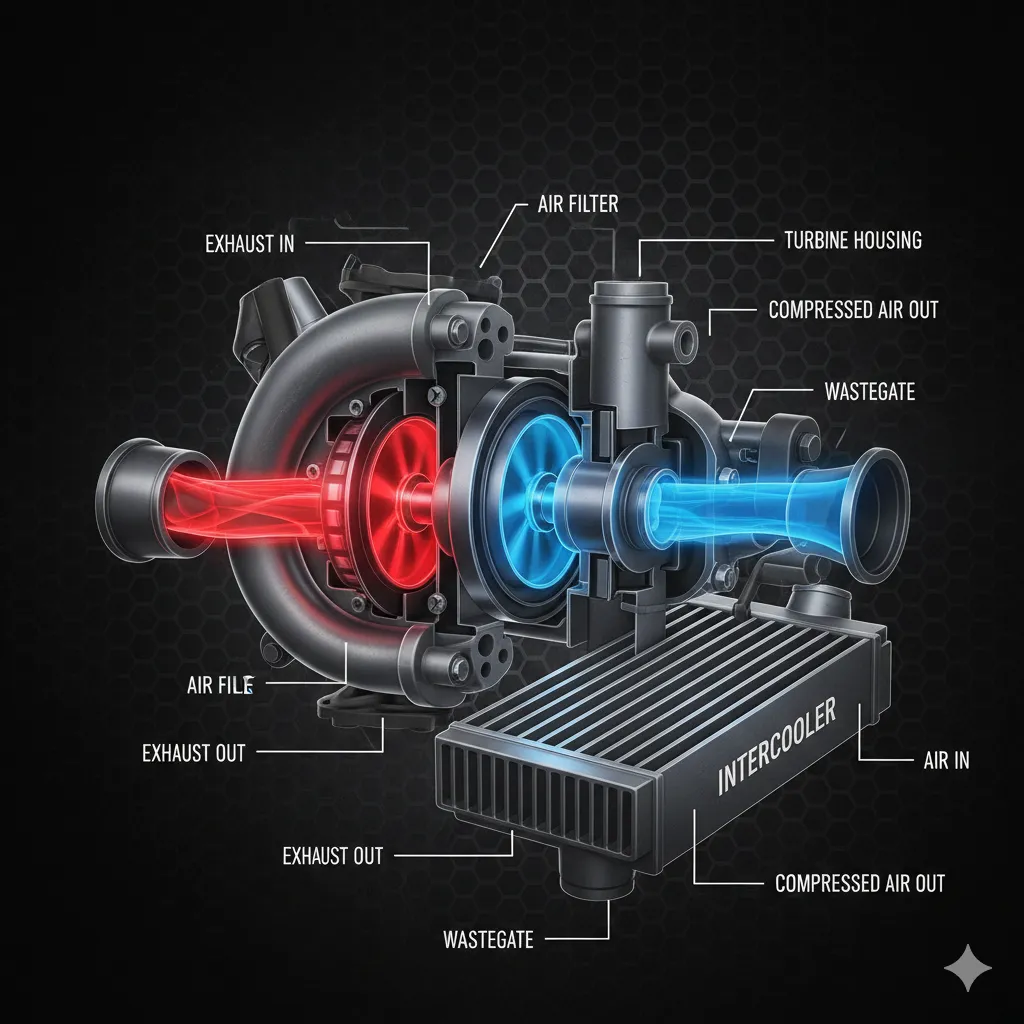
EV vs. Hybrid: The Ultimate Engine Showdown
The Ultimate Showdown: EV vs. Hybrid
As the automotive industry shifts towards a more sustainable future, drivers are presented with a crucial choice: a fully electric vehicle (EV) or a hybrid. Both options promise a greener ride and reduced fuel consumption, but their core technologies and ownership experiences are vastly different. Understanding these differences is key to making a smart decision that fits your budget, driving habits, and environmental goals.
This guide dives deep into the EV vs. hybrid debate, comparing their engines, performance, costs, and overall ownership experience.
The Fundamentals: What Powers These Vehicles?
The primary distinction between an EV and a hybrid lies in their power source.
-
Electric Vehicles (EVs): An EV is powered exclusively by a large battery pack that sends electricity to one or more electric motors. There is no internal combustion engine (ICE) or tailpipe, meaning they produce zero tailpipe emissions. The only way to "fuel" an EV is by charging its battery from an external source, such as a home charger or a public charging station.
-
Hybrid Vehicles: A hybrid is a true dual-power system. It combines a traditional internal combustion engine (ICE) with an electric motor and a small battery pack. The vehicle can switch between these two power sources to maximize efficiency. The ICE can drive the wheels, charge the battery, or work in tandem with the electric motor for extra power. Unlike a pure EV, a standard hybrid recharges its battery through regenerative braking and the gasoline engine, not by plugging in.
Types of Hybrids
To add a layer of complexity, hybrids come in several forms:
-
Standard Hybrids (HEV): These vehicles do not plug in. They use the gas engine and regenerative braking to recharge the battery. They are excellent for improving fuel efficiency, especially in city driving. The Toyota Prius is a classic example.
-
Plug-in Hybrids (PHEV): A PHEV is a bridge between a standard hybrid and an EV. It has a larger battery than a standard hybrid and can be charged by plugging into an external power source. A PHEV can drive for a limited all-electric range (typically 20-50 miles) before the gasoline engine kicks in. This allows for emission-free commuting while still having the backup of a gas engine for longer trips.
Performance and Driving Experience
The driving feel of an EV and a hybrid is noticeably different.
-
EVs: EVs are known for their instant torque and silent, smooth acceleration. Because an electric motor provides 100% of its torque from a standstill, the throttle response is immediate and exhilarating. The quiet ride, without the noise of an engine, creates a calm and serene cabin environment.
-
Hybrids: The performance of a hybrid depends on the type and model. A standard hybrid often feels similar to a conventional gasoline car, with the electric motor providing a subtle boost during acceleration or low-speed driving. A PHEV can feel like a silent EV for short distances, but the transition to the gasoline engine can be noticeable, especially under heavy acceleration.
Cost and Maintenance
Here, the long-term financial picture becomes a critical factor in the EV vs. hybrid decision.
-
Initial Cost: Historically, EVs have had a higher upfront purchase price than hybrids and gasoline cars. However, government tax credits and rebates can significantly reduce this cost, making them more competitive. Hybrids are generally more affordable than EVs.
-
Fuel/Charging Costs: This is where EVs shine. The cost of electricity is almost always cheaper than gasoline. A pure EV owner eliminates gasoline expenses entirely. A hybrid owner will still need to buy gas, but their trips to the pump will be less frequent.
-
Maintenance: An EV's simplicity is its biggest advantage. With no internal combustion engine, there are no oil changes, spark plug replacements, or exhaust system repairs.
An EV's maintenance is primarily limited to tires, brakes (which last longer due to regenerative braking), and the cabin air filter. Hybrids, with their dual-system, require maintenance for both the gasoline engine (oil changes, etc.) and the electric components. This can lead to higher long-term maintenance costs.
Range and Infrastructure
"Range anxiety"—the fear of running out of power—is a key concern for potential EV buyers.
-
EVs: The range of an EV varies widely by model, with some exceeding 400 miles on a single charge. However, charging infrastructure is still developing. While fast-charging networks are expanding rapidly, a long road trip still requires careful planning to locate charging stations.
-
Hybrids: Range anxiety is not a concern for hybrid drivers. When the battery depletes, the gasoline engine takes over, and the vehicle can be refueled at any gas station, just like a conventional car. This makes hybrids a more flexible option for drivers who frequently take long, unplanned trips.
Environmental Impact
When it comes to environmental friendliness, the winner is clear, but with a nuance.
-
EVs: EVs produce zero tailpipe emissions, directly reducing air pollution in urban areas. Their overall carbon footprint is determined by how the electricity used to charge them is generated. When charged with renewable energy sources like solar or wind, their environmental impact is close to zero.
-
Hybrids: While more efficient than a purely gasoline-powered car, hybrids still rely on a fossil fuel engine. They produce tailpipe emissions and are not a zero-emissions solution.
FAQs
Q1: Do hybrids need to be plugged in? A: Standard hybrids (HEVs) do not need to be plugged in. Their batteries are recharged by the gasoline engine and regenerative braking. Plug-in hybrids (PHEVs) can and should be plugged in to maximize their all-electric range.
Q2: How long do EV batteries last? A: Most EV batteries are designed to last for the lifetime of the vehicle, typically 8-10 years or 100,000 to 150,000 miles. Many manufacturers offer a warranty for the battery pack's longevity.
Q3: Is an EV or a hybrid better for long road trips? A: A hybrid is generally a better choice for frequent, long road trips due to its ability to refuel at any gas station, eliminating concerns about charging infrastructure and wait times.
Q4: Which is better for city driving? A: Both are excellent for city driving. EVs excel with their quiet, emissions-free operation, while hybrids are highly efficient in stop-and-go traffic, where they can use their electric motor and regenerative braking to save fuel.
Conclusion
The choice between an EV vs. hybrid ultimately depends on your individual needs. If you have access to home charging, prioritize zero-emission driving, and are ready for a new driving experience, a pure EV is an excellent choice for a sustainable and low-maintenance future.
However, if you're not ready to commit to a fully electric lifestyle, frequently take long trips, or have concerns about charging infrastructure, a hybrid offers a perfect compromise. It provides improved fuel efficiency and a reduced environmental footprint without changing your refueling habits. Both technologies are driving us toward a greener future, and the right choice is the one that best suits your journey.
External Links:




